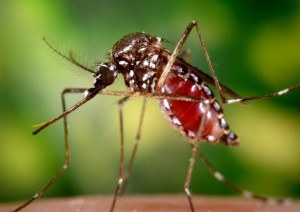North Carolina’s second case of chikungunya was confirmed today in an Alamance County resident who recently traveled to the Caribbean. Currently, none of the reported cases of this viral infection have been acquired in North Carolina or the continental United States.
Chikungunya virus is transmitted through the bite of an infected mosquito, and the Asian Tiger mosquito that is commonly found in North Carolina could effectively transmit this virus. Symptoms of chikungunya typically include the sudden onset of fever and severe, often disabling, joint pains in the hands and feet. Symptoms usually begin three to seven days after being bitten by an infected mosquito.
DHHS’ Division of Public Health advises persons traveling to countries where chikungunya transmission is occurring to adhere to personal precautions in preventing mosquito bites, and contact a medical provider if they develop any symptoms upon their return home. All North Carolina residents are also strongly advised to take measures such as emptying outdoor containers of any standing water at least weekly to decrease environmental conditions favorable to breeding mosquitoes that could transmit this infection.


